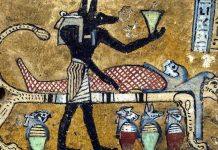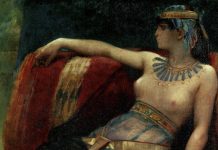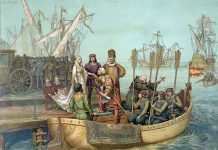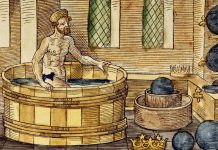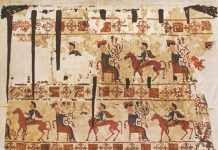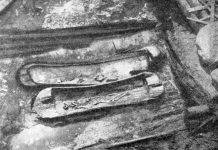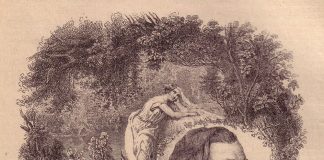The story of the Manns is not only a story of great success in literature and high self-discipline as a writer; there was a place for drugs, suicides and sexual disorders. Countless legends swarm around all this. However, the claims of some researchers that it came to incest and that the young Thomas Mann in Italy somehow brought an animal or even a human sacrifice, have not received evidence.
“What an unusual family we are after all! – noted in 1936 in the diary of Klaus Mann. “Then they will write books about us, not just about each of us individually.” In the same year he wrote the following: “I approve of all the extravagance that I have indulged in and am indulging in. The same applies to thoughtless perversity and drug addiction.”
What could Thomas Mann oppose to this? After all, it is a fact that one pastor in Lubeck, even after the senator’s death, called such hitherto pleasant Manns a “decaying dynasty”. The widow in Munich was not famous for a righteous life, and her daughters – even less so.
Both of Thomas Mann’s sisters were younger than him: Carla, a failed actress, was born in 1910; Lula, a mother of three girls who suffered from morphinism, in 1927. Carla’s suicide, following the early death of her father, was a severe shock that threatened to shake Thomas Mann’s civic consciousness; this act made him think that “our foundations have been shaken.” At the same time, he condemned Carla for her “proud and sarcastic temper,” saying that she had “moved into vile Bohemia.”
There is a limit to everything, and neither suicide (a thought not alien to the writer himself, who early recognized his “sympathy for death”), nor drug addiction, Mann, who was distinguished by very liberal ideas about what a citizen is, never reconciled.
The same goes for his wife Katya: the drug addiction of Klaus’ son seemed to her “petty bourgeois”, but this did not apply to his often ostentatious homosexuality: the doors of the house were always open to Klaus’ friends. It didn’t help: Klaus Mann also committed suicide in 1949. He was the eldest son of Thomas Mann; many years later, on New Year’s Eve 1977, his example was followed by his younger son Michael, who first studied music and then took up German studies in the USA.
It was an amazing family in every way. The phrase amazing family (this is “amazing family” in English), launched by the British diplomat and writer Harold Nicholson in 1939, soon caught on, later it was adopted by the Manns themselves; parents were happy to use it in letters to children.
In the Weimar Republic, Thomas Mann was “one hundred percent representative of the literary nobility.”
INTEREST IN SOMEONE ELSE’S LIFE
In the Weimar Republic, Thomas Mann was “a representative of the literary nobility one hundred percent,” and “what the Windsors are for the English, for the Germans, at least the intelligent ones, are the Manns.”
In the interest that exists today in the Mann family, there is something of peeping through the keyhole: where else can you peek what is going on behind the facade in the family? Even about their best
The motto of the Mann family was: everyone about themselves, everyone about everyone, and not necessarily in a kind way.
Of course, we are talking not only about the central figure in this dynasty, the indefatigable chronicler Thomas Mann. The motto of the Mann family was: everyone about themselves, everyone about everyone, and not necessarily in a kind way. Klaus Harpprecht, another Mann biographer, called it “the innate family tactlessness of the Manns.”
It began very early between the brothers Henry and Thomas, the most significant representatives of the writers’ dynasty, who had a fierce competition with each other for many years. So, in one letter, Thomas wrote about his brother, four years older, whose “artistic individuality” he hated, that his books were unusually bad and “arouse passionate rejection.” And when Heinrich in 1915 wrote in an essay about Zola that “at the age of a little over twenty years to act as an omniscient person with ideas about world justice is an occupation for those who are destined to run out quickly,” the popular author of “Buddenbrokes” – most likely not without reason – considered himself the subject of discussion.
In 1938, Thomas Mann’s son Klaus wrote in his diary that his father was often “unconsciously hostile” against Heinrich (whom Klaus valued very much), and adds the question: “Is he at least differently disposed towards anyone?”
It’s not easy being the son of Thomas Mann. It was easier for the daughters to win him over, to let him prove himself as a gentle, even loving father – this was well done by the elder Erica and even better by Elizabeth, the youngest and clearly beloved daughter.
When the young Golo was in danger of having dinner alone with his father, before whom he experienced “great shyness” in his younger years, he planned a couple of points in advance, “so that the conversation would not stop and terrible silence would not reign.” Once he confessed this to his brother Michael, and he just laughed: “I do exactly the same!”
Michael Mann later recalled a long family dining table in a large house, at which, like a king, as usual, his father sat. The children sat at the other end of the table, and they were not allowed to talk unless they were addressed.
Little Michael ventured into his father’s bedroom only once. It was in 1929, when his mother sent him and Elizabeth to inform the deceased pope of the news that he had been awarded the Nobel Prize. Then there were no objections from the disturbed person, and there were no problems.
In other cases, “woe was us if we disturbed him,” as Golo later wrote in his memoirs. “We had to be quiet almost constantly: before noon because my father was working; in the afternoon because he read first and then slept; in the evening because he was again engaged in serious business.”
At the same time, he mentioned, not without envy, that there was no book written by Brother Klaus, “which his father would not have read carefully, about the most memorable and profound moments of which he would not have written to him.”
Only after reading his father’s diaries, Golo found out that most likely the rigidity in relations with his sons was just an appearance: “Sometimes I feel ashamed when I read with what love he writes about his sons. I didn’t know about it.”
The older ones called him “the sorcerer” – half with admiration, half with irony; for the younger ones, he was “Tommy” until his mother stopped it, and then one of the children made the subsequently accepted proposal to call him “Mr. papa”. A monster named Thomas Mann?
His wife called him a “monster” on occasion, and she also often said that he was “crazy.” Meanwhile, the legend of the insensitive father of the family, who harassed relatives in order to hide behind a prosperous facade, quietly indulge in literary and homosexual fantasies, and at the same time brought some of his own to drug addiction and suicide, spread widely – not least through his daughter Elizabeth.
The family meant a lot to Thomas Mann’s writing activity: they were always available listeners during home readings, at which unfinished works were presented; or assistants, like his wife Katya, who designed his letters and in the early years reprinted his manuscripts, or like Eric’s daughter, who, like a lecturer, “wittily identified any pedantic excess.” But first of all, his relatives were suppliers of material for him, a source of inspiration.





